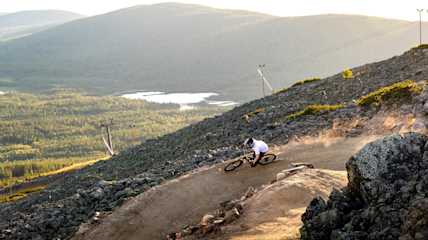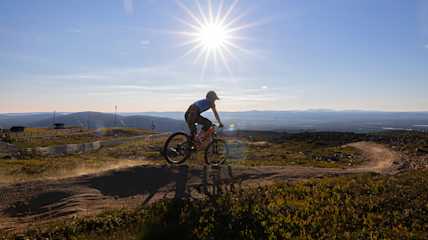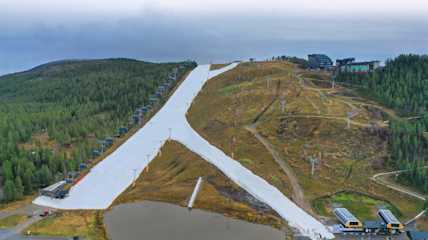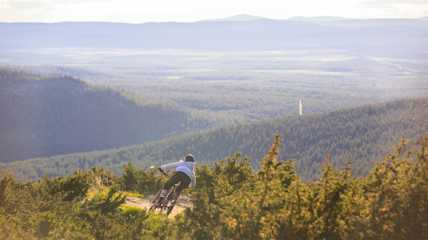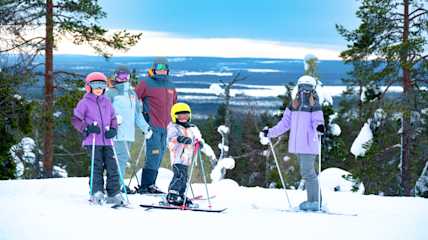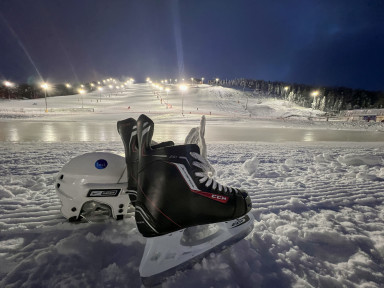
The joy of ice skating at Levi!
Can I ice skate in Levi? Yes, you can! In Levi, there is an ice skating rink open to everyone, where you can ice skate with your own skates or rent them on-site.
Levi's Front Slope ice skating rink is at the bottom of the slope in the fell pond and opens at the end of January and stays open until the winter holidays. After the opening, the rink is open around the clock, and you can rent skates and a helmet from the Zero Point Rental.
Ice skating is a great way to have fun with the whole family and develop fitness, body control, and balance
It's good to know the basics of ice skating technique, you get more out of the experience, and you don't have to be afraid of falling. In the correct skating position, keep your knees slightly bent, positioned over your toes, and your eyes up. This position lowers your center of gravity, stabilizing you. It also helps you to skate without being afraid of falling backward. You should try to keep your weight positioned over your skating leg. One time you’re skating on the right leg, and the next moment on the left one. Every time you switch legs, you must shift your weight, transferring it over to the skating leg. Hands rhythm the movement of the legs. A bold weight transfer from one leg to another makes skating easier and develops balance at the same time.
Braking is also an important skill to know. To do a snowplow stop, start by reducing your speed by assuming a two-foot glide position. Next, bend your knees and ankles. Then, apply sufficient pressure (not too little or too much) to your blades’ inside edges. When you do this, your heels will naturally begin to angle out. And that’ll have you skidding rather than gliding, bringing you to a successful, safe stop. You can do either the right-foot T-stop or the left-foot T-stop. How to do the right-foot T-stop: First off, assume the T-position with your skates, the right foot is meeting the left foot, forming a letter T. As you do that, stretch your right arm to the front while putting the left one to the back. Then, stand and achieve balance while in this position. Practice this until you can maintain that T-position without moving. Next, use your left foot to push off and do a nice glide, holding the right foot (the stopping foot) up. The free foot should help you control the glide. At this juncture, you’re ready to start putting your foot down. Avoid dragging the stopping foot on the inside edge. Instead, use the outer edge to push the foot toward the left heel. And be careful or you’ll step on the left blade. Then, angle the right-foot blade to the outside edge while bending your knees to a nice, controlled stop. To do the left-foot T-stop, repeat the steps above, but begin with the left foot.
Falling is common in ice skating, and you shouldn't be afraid of it, because everyone falls sometimes. If you fall, try to keep your head in the air. Falling sideways is the safest way to fall. To get back up, roll onto your hands and knees. Set one foot, preferably your dominant one, on the ice — between your hands. After doing this, quickly get the other foot on the ice, also positioned between your hands. At that point, stand up, keeping your knees slightly bent. Once you’re back up, regain your balance and you’re good to go.
Ice skating is always done at your own risk. Please make sure that you wear a helmet.
